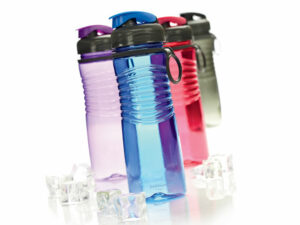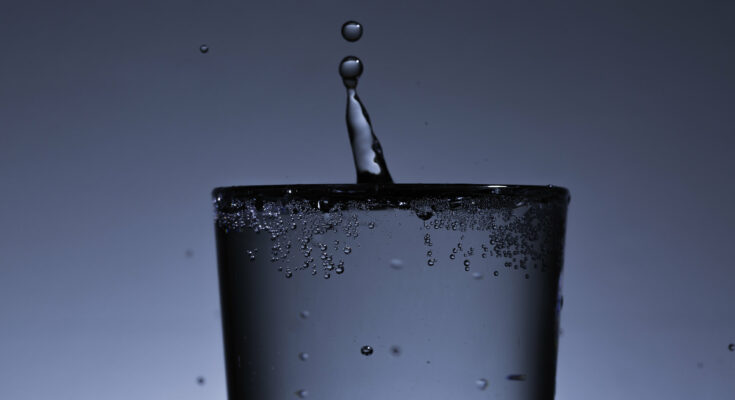Contents
Water for Weight Loss: The Ultimate Guide

Water, often underestimated in the quest for weight loss, is a potent ally in your journey towards a healthier, slimmer you. As a medical doctor, I’m here to provide you with comprehensive guidance on just how much water you should consume to turbocharge your weight loss efforts. We’ll dive into the intricacies, tailoring your water intake to different body types, age, and metabolism speeds. But remember, like any powerful tool, both too little and too much can have unintended consequences. The first question one might ask one self is “Will drinking water help me lose weight?”
The Crucial Role of Water in Weight Loss

Before we delve into the specifics, it’s vital to understand why water is pivotal in your weight loss voyage.
Water, the Appetite Tamer
Imagine having a secret weapon to curb your cravings and stave off overindulgence. That secret weapon is water. When you sip water before a meal, it creates a sensation of fullness, potentially curbing calorie intake during that meal. Research consistently shows that those who hydrate before meals tend to consume fewer calories overall. A formidable strategy, indeed.
Water, the Metabolism Maestro
Your metabolism, the engine burning calories, operates most efficiently in a well-hydrated state. Dehydration can be a metabolic drag, reducing your body’s ability to torch calories efficiently. It’s like slogging through mud instead of cruising on a well-paved road. Hydration ensures that your metabolic engine runs at peak performance. It is important to know how much coolant and lubricant this engine needs. To know for yourself: How much water do I need to drink to lose weight?
Water, the Calorie-Free Champion
In a world inundated with sugary, calorie-laden beverages, water shines as a beacon of calorie-free refreshment. Swap out those high-calorie culprits for the clear, clean simplicity of water, and you’ll slash your daily calorie intake. Weight loss is often as much about subtraction as it is about addition, and water helps you subtract calories without a second thought.
Water, the Fluid Balance Maestro
Your body is a dynamic balance of fluids. Dehydration can tip that balance towards water retention, temporarily inflating the scale. But staying adequately hydrated maintains this balance, helping you avoid the frustrating and transient weight fluctuations caused by water retention.
How Much Water for Weight Loss: Tailoring to You
Now that you’re armed with the knowledge of water’s weight loss superpowers, let’s uncover the personalized approach to hydration.
The Power of Adaptation: Individualized Water Needs
One size doesn’t fit all in the world of water intake. Your unique body type, age, and metabolism all influence your water requirements. Here’s how to adapt your hydration plan to your distinct profile.
Body Types:
- Mighty Bodies, Mighty Thirst: If you’re blessed with a larger frame, your body commands more water to sustain its grandeur. The greater volume needs to be adequately hydrated. Be prepared to exceed the standard “8×8” guideline, reaching for that extra glass to quench your thirst.
- Compact Yet Powerful: For those of smaller stature, your body’s hydration needs might be slightly less. But don’t underestimate the importance of staying well-hydrated. Even petite frames require their share of water to function optimally.
Age:
- Youthful Thirst: Children and adolescents, especially during growth spurts, need an ample supply of water to fuel their bodies’ development. Encourage the younger generation to embrace water as a vital ally in their growth journey.
- Seasoned Hydration: As we mature, our sense of thirst might diminish, and the risk of dehydration can rise. Older adults must prioritize hydration to keep their metabolic engines firing efficiently.
Metabolism Speeds:
Metabolism is a dynamic force, influenced by genetics, muscle mass, and activity levels. While water itself doesn’t turbocharge metabolism, it’s essential for maintaining the metabolic machinery.
- Speedy Metabolisms: For those with zippy metabolisms, consider increasing your water intake slightly. A well-hydrated body can better sustain the rapid calorie burn of a swift metabolism.
Dehydration: The Weight Loss Saboteur
Before we dive into the intricacies of personalized water intake, it’s crucial to recognize the perils of dehydration. Inadequate hydration can undermine your weight loss goals in numerous ways.
Sluggish Metabolism: Dehydration acts as a metabolic brake, making it harder to burn calories efficiently. A dehydrated body prioritizes water conservation over calorie burning, leading to a slowdown in your metabolic engine.
Hunger Pangs: Thirst and hunger share a fine line. When dehydrated, your body might misinterpret thirst as hunger, causing you to consume unnecessary calories. This can disrupt your quest to maintain a calorie deficit for weight loss.
Temporary Weight Gain: Paradoxically, inadequate water intake can lead to transient water retention. Dehydrated bodies often hold onto water as a protective mechanism, causing a short-term bump in the numbers on the scale.
Impaired Performance: Physical activity is a linchpin in weight loss, and dehydration can hobble your performance. Lack of endurance and pesky muscle cramps are frequent companions of dehydration during exercise.
The Pitfalls of Overhydration
While the value of hydration is undeniable, it’s vital to steer clear of the extremes. Guzzling excessive water can trigger unwanted consequences.
Electrolyte Deluge: Downing water without replenishing vital electrolytes (sodium, potassium, etc.) can plunge your body into a state known as hyponatremia or water intoxication. This condition occurs when blood sodium levels plummet, leading to symptoms like nausea, headaches, confusion, and, in severe cases, seizures.
Gastrointestinal Chaos: Consuming large volumes of water in a short span can overwhelm your digestive system, inducing discomfort, bloating, and unwelcome bouts of diarrhea.
Temporary Water Weight Surge: Excessive water intake can momentarily inflate your weight due to fluid dilution. This transient water weight gain can mislead you on the scale and sow frustration in your weight loss journey.
Frequent Urination: Drowning in water can lead to incessant trips to the restroom, disrupting your sleep and daily activities.
Customizing Your Water Intake for Weight Loss
Crafting a personalized water plan tailored to your body type, age, and metabolism speed requires a savvy approach.
Tune into Your Body: The thirst signals your body sends are your compass. Listen closely and respond when your body calls for hydration. Trust your body to guide you.
Sip Steadily: Spacing out your water intake throughout the day ensures a steady, sustainable hydration pattern. This approach prevents overhydration while maintaining an even keel of hydration.
Activity Awareness: If you’re an exercise enthusiast or live in a sweltering climate, your water requirements will rise. Prioritize hydration before, during, and after physical activity to replenish lost fluids.
Urine Clues: The color of your urine is a handy indicator of your hydration status. Pale yellow to light straw-colored urine signals adequate hydration. Dark yellow or amber hues may indicate dehydration.
Calculate Your Needs: Some medical experts suggest a daily water intake of 30-35 milliliters per kilogram of body weight. This equation factors in your individuality, offering a more tailored estimate of your hydration requirements.
Water-Rich Foods: Remember that a portion of your daily water intake comes from your diet, especially fruits and vegetables. These water-rich foods contribute significantly to your overall hydration.
Electrify with Caution: If you’re consuming copious amounts of water, especially during extended physical activity, consider replenishing electrolytes with sports drinks or electrolyte-rich foods to safeguard against hyponatremia.
In your quest for a healthier, slimmer you, remember that water is not just a beverage—it’s your indispensable ally, guiding you towards success while safeguarding your well-being.

